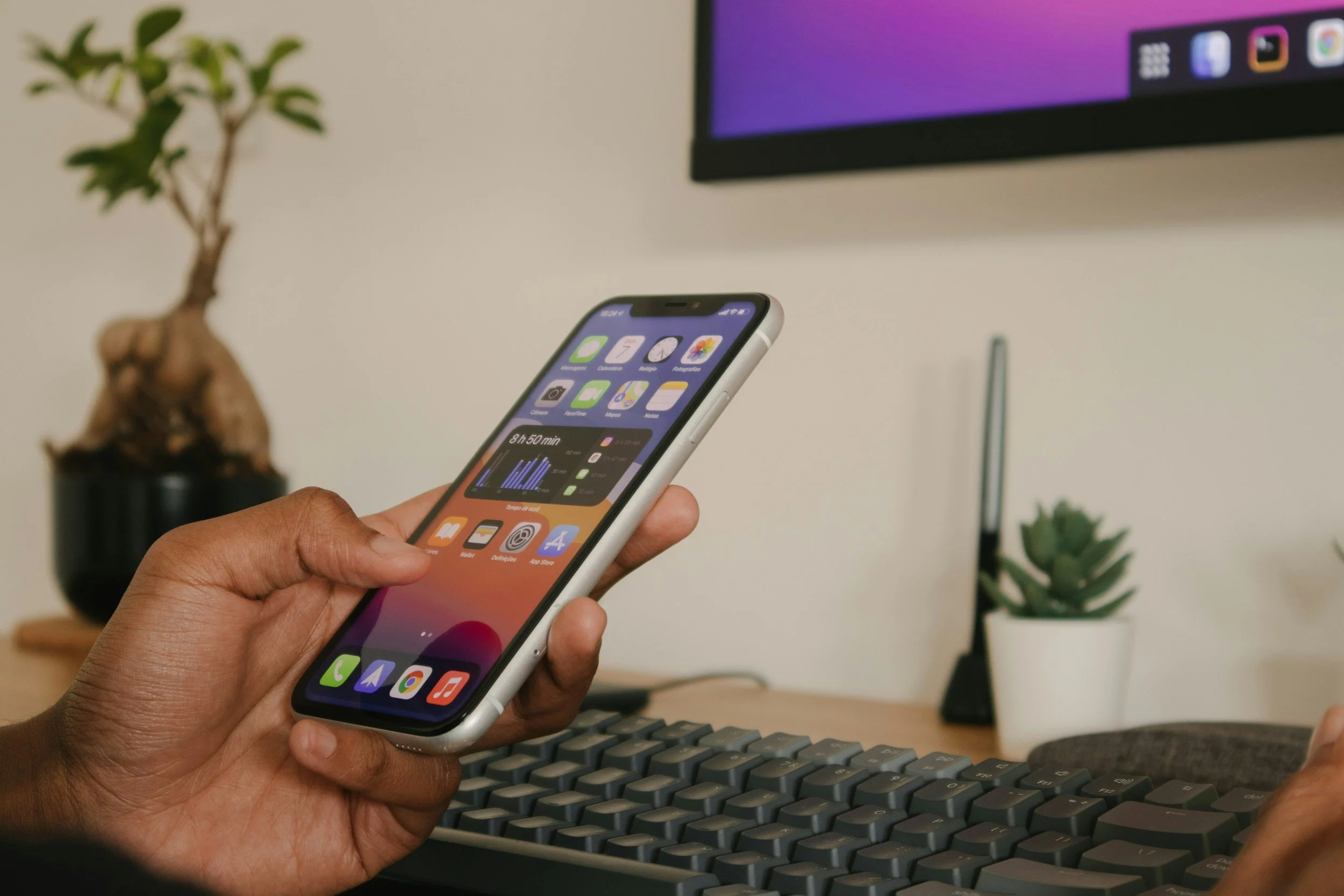Why Your Memory Struggles in a Distracted World (And What to Do About It)
You sit down to read something important.
Two minutes later, your phone lights up.
You check one message. Then another.
Ten minutes go by, and suddenly you can’t remember a single sentence you just read.
Sound familiar?
It’s not that you have a bad memory.
It’s that your attention is being stolen, piece by piece, ping by ping.
We live in an age where focus is under attack.
And because memory depends on focus, distraction quietly weakens your ability to remember, learn, and think clearly.
In this lesson, we’ll look at how distraction erodes memory, what it’s doing to your brain, and how to rebuild focus so your mind stays sharp, even in a world designed to break it.
Why Distraction Kills Memory
Most people think memory is about recall, the ability to bring information back.
But true memory begins much earlier, at the point of attention.
If you don’t give something your full attention in the first place, your brain never properly encodes it.
And if it’s not encoded, it can’t be recalled.
That’s why you can’t remember what you just read on your phone, but can vividly recall the smell of your childhood home or the sound of your first car starting up.
One had depth, emotion, focus.
The other had none.
In today’s world, attention has become fragmented.
We check our phones dozens of times per hour, switching between messages, apps, and tabs.
Every switch resets your brain’s short-term memory buffer, wiping the mental chalkboard before anything can stick.
Your brain is trying to juggle too many open loops, and the result is what I call “mental scatter.”
The Science Behind Mental Scatter
When you switch tasks, even for a second, your brain releases a small burst of dopamine, a reward chemical.
It feels good in the moment, but it tricks your brain into thinking something new is always better.
The more you switch, the more your brain craves novelty.
Over time, you train your mind to prefer interruption over immersion.
Neurologically, this weakens two key areas:
The Prefrontal Cortex, responsible for focus and decision-making
The Hippocampus, responsible for converting short-term information into long-term memory
So every time you multitask, check your phone mid-task, or scroll while working, you’re not just dividing attention, you’re diluting memory.
The Hidden Cost of Multitasking
You might feel productive juggling multiple tasks, but studies show multitasking can reduce effective IQ by up to 10 points, roughly the same as staying awake all night.
That’s because your brain doesn’t multitask; it switches rapidly between tasks, losing time and clarity each time it does.
Every switch carries what psychologists call a “switching cost.”
It takes several seconds for your brain to refocus, and those seconds add up.
By the end of the day, you’ve lost minutes, even hours, of clear thinking.
More importantly, you’ve weakened the consistency your memory relies on to store information efficiently.
You can’t plant new seeds in a garden if you keep digging them up.
Signs Your Attention Is Fragmented
You may not realize how distracted you’ve become until you see the symptoms:
You reread the same paragraph multiple times.
You can’t remember details from meetings or podcasts.
You reach for your phone without realizing it.
You lose track of ideas mid-thought.
You feel mentally drained even after simple tasks.
You struggle to finish things you start.
If these sound familiar, it’s not a lack of motivation, it’s attention fatigue.
And like any muscle, attention weakens without consistent training.
How Distraction Shapes Modern Memory
Here’s the irony:
Technology was meant to extend our memory, calendars, reminders, notes.
But the more we rely on external storage, the less we engage the internal process.
You don’t remember anymore, you retrieve.
You don’t rehearse, you search.
That constant outsourcing changes how your brain treats information.
Instead of encoding deeply, it treats most data as temporary, useful now, disposable later.
Over time, you start remembering less not because your brain is incapable, but because it’s being told, “You don’t need to remember this.”
The cost?
Shallower thinking.
Weaker creativity.
Shorter recall span.
Your brain forgets how to hold information long enough to connect it to anything meaningful.
The Good News: You Can Rebuild Focus
The ability to focus deeply isn’t lost, it’s just underused.
And like any skill, it can be retrained.
Let’s go through the steps.
Step 1: Audit Your Attention
Before you can fix distraction, you need to understand how it shows up in your day.
For one full day, notice every time you switch tasks or pick up your phone.
Write down what triggered it, boredom, anxiety, curiosity, habit.
At the end of the day, look for patterns.
You’ll likely find that 80% of your distractions come from a few key moments or triggers.
Once you know your triggers, you can begin to control them instead of being controlled by them.
Step 2: Create Focus Windows
You don’t need 10 hours of focus a day. You need short, intentional bursts.
Try this simple rule:
25 minutes of focus → 5 minutes of rest.
Set a timer.
Turn off notifications.
During those 25 minutes, do only one thing.
No phone, no tabs, no switching.
That’s one “focus window.”
Over time, stack 3 or 4 of these and you’ll outperform most people who spend all day multitasking.
Your memory thrives when you give it uninterrupted attention.
Step 3: Train Single-Task Thinking
Your brain loves closure, finishing one thing before moving to the next.
When you multitask, you deprive it of that closure, leaving hundreds of mental tabs open.
To retrain focus, practise single-tasking with small things:
When you eat, just eat.
When you walk, just walk.
When you read, just read.
These micro-disciplines retrain your brain to hold one thread of attention longer.
That same focus then transfers into work, study, and conversation.
Step 4: Protect Your Inputs
Your memory is only as strong as the quality of what goes in.
If your day starts with chaos - notifications, news, endless scrolling, your brain begins scattered.
Instead, start your day intentionally:
No phone for the first 30 minutes.
Consume consciously. One high-quality article or video beats 20 mindless scrolls.
Ask yourself: “Do I want this to take up space in my mind today?”
Curation is a modern memory skill.
You can’t focus deeply if your brain is constantly reacting to junk data.
Step 5: Make Focus Physical
Your body and brain are connected.
If your environment screams distraction, focus becomes impossible.
Here’s how to make focus tangible:
Declutter your workspace. Only keep what you need for your current task.
Position your phone out of sight when working.
Use light and posture to your advantage, sit upright, face natural light, and breathe slowly.
Every small physical cue helps your brain associate that environment with deep focus.
Step 6: Strengthen Your “Attention Muscles”
Attention is trainable.
Here are three simple exercises to build it daily:
The Observation Drill
Pick one object and study it for 60 seconds - colour, shape, shadow. This sharpens sensory focus, which improves memory encoding.
The Recall Drill
At the end of each day, recall three things you did in detail, where you were, who you saw, what you said. This strengthens recall through active reconstruction.
The Mind Reset
Once an hour, take one deep breath, exhale slowly, and refocus your gaze. This resets your cognitive load and refreshes your working memory.
Step 7: Build a Digital Boundary
Information overload is the new form of mental pollution.
If you want your memory to thrive, you must create space for stillness.
Here’s what that might look like:
No screens for one hour before bed.
A full digital detox for one day each week.
Social media only in pre-scheduled blocks (not whenever you’re bored).
When you give your brain stillness, you restore its ability to process, store, and recall.
Remember, clarity isn’t built in chaos.
Why Focus Feels Like Freedom
When you retrain focus, something powerful happens.
You start remembering things naturally again.
You recall names more easily.
You retain details from what you read.
You finish tasks faster and with less stress.
You feel calmer because your mind isn’t pulled in 20 directions.
Focus doesn’t just strengthen memory, it gives you your mental freedom back.
From Information Overload to Intentional Focus
You don’t need to live disconnected.
You just need to live deliberately.
Your brain wasn’t built for constant stimulation.
It was built for meaningful focus.
When you create boundaries around distraction, you stop scattering your mental energy and start storing information deeply again.
You’ll read faster, learn faster, and think more clearly, not because your brain got smarter, but because you finally gave it the stillness it needed.
Final Thoughts
Forgetfulness in the modern world isn’t a memory problem.
It’s an attention problem.
Your brain can’t remember what it was never given the time to absorb.
When you slow down, protect your focus, and train single-tasking, your memory comes back stronger, effortlessly.
So next time you forget what you just read or lose your train of thought, don’t blame your memory.
Blame the noise, and then silence it.
Focus is the new superpower.
And anyone can train it.
Ready to see how strong your memory really is?
Take the free 2-minute Memory Assessment and find out where your focus, recall, and learning stand today.


